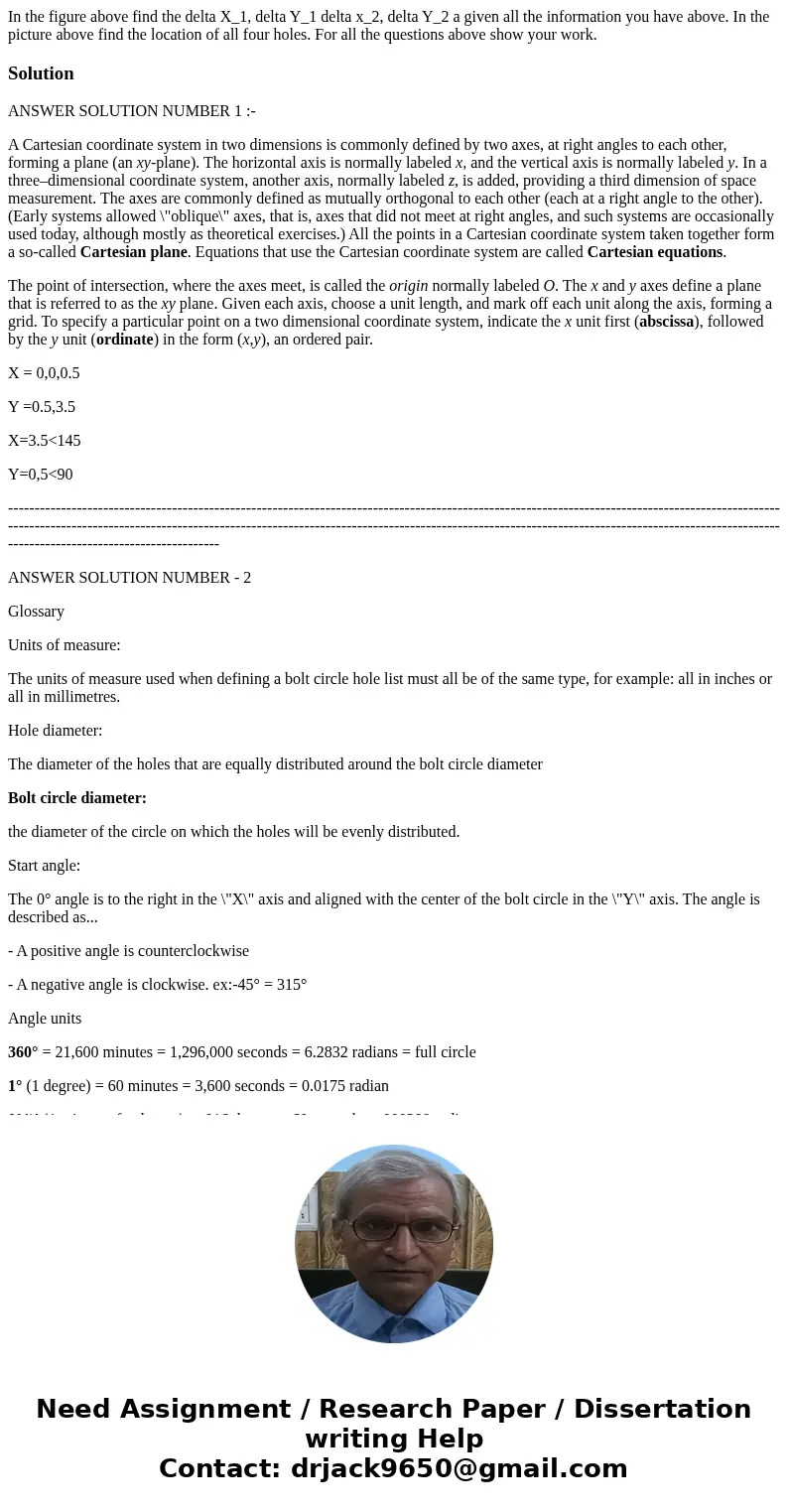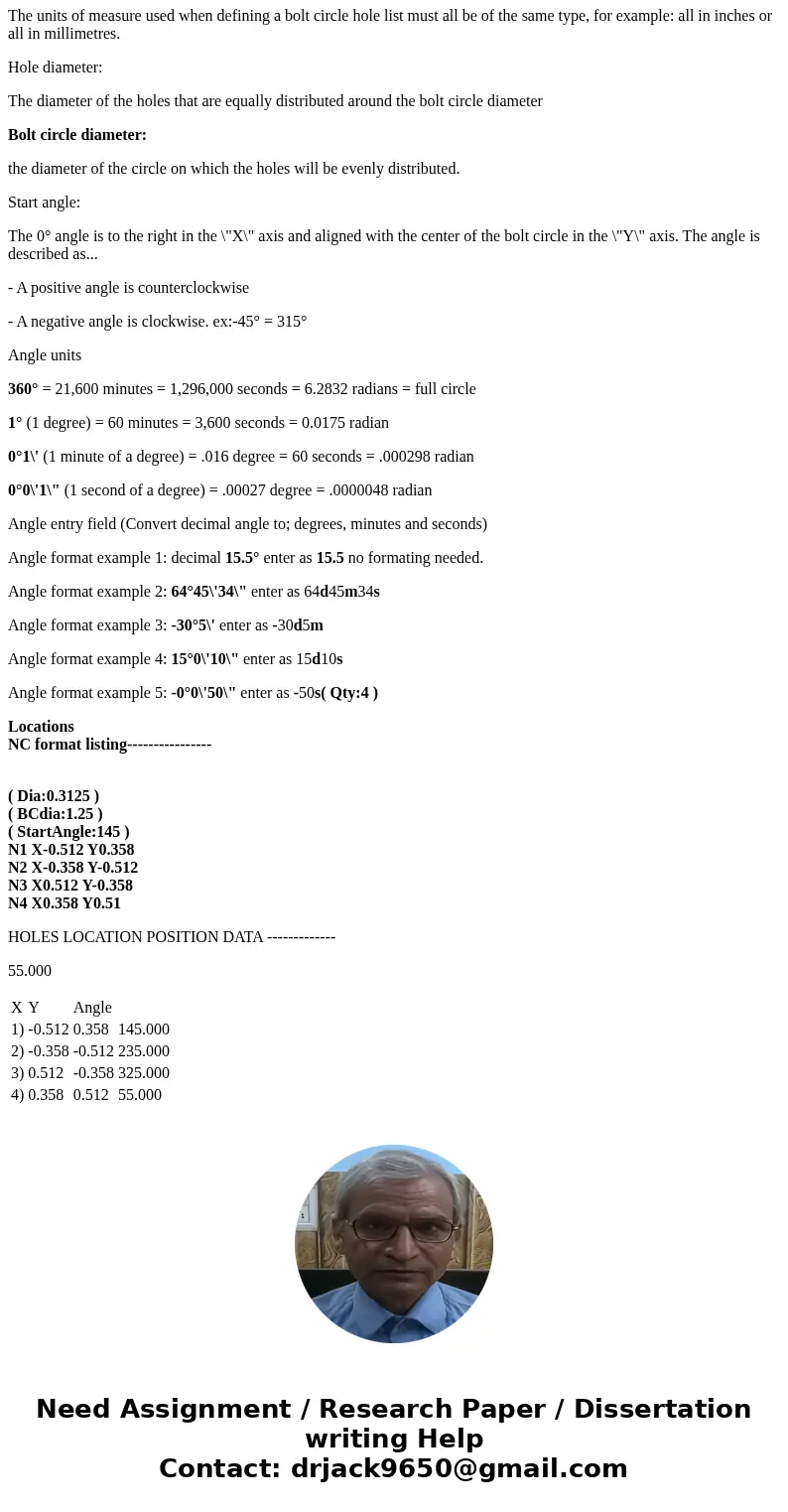In the figure above find the delta X1 delta Y1 delta x2 delt
Solution
ANSWER SOLUTION NUMBER 1 :-
A Cartesian coordinate system in two dimensions is commonly defined by two axes, at right angles to each other, forming a plane (an xy-plane). The horizontal axis is normally labeled x, and the vertical axis is normally labeled y. In a three–dimensional coordinate system, another axis, normally labeled z, is added, providing a third dimension of space measurement. The axes are commonly defined as mutually orthogonal to each other (each at a right angle to the other). (Early systems allowed \"oblique\" axes, that is, axes that did not meet at right angles, and such systems are occasionally used today, although mostly as theoretical exercises.) All the points in a Cartesian coordinate system taken together form a so-called Cartesian plane. Equations that use the Cartesian coordinate system are called Cartesian equations.
The point of intersection, where the axes meet, is called the origin normally labeled O. The x and y axes define a plane that is referred to as the xy plane. Given each axis, choose a unit length, and mark off each unit along the axis, forming a grid. To specify a particular point on a two dimensional coordinate system, indicate the x unit first (abscissa), followed by the y unit (ordinate) in the form (x,y), an ordered pair.
X = 0,0,0.5
Y =0.5,3.5
X=3.5<145
Y=0,5<90
--------------------------------------------------------------------------------------------------------------------------------------------------------------------------------------------------------------------------------------------------------------------------------------------------------------------------------------------
ANSWER SOLUTION NUMBER - 2
Glossary
Units of measure:
The units of measure used when defining a bolt circle hole list must all be of the same type, for example: all in inches or all in millimetres.
Hole diameter:
The diameter of the holes that are equally distributed around the bolt circle diameter
Bolt circle diameter:
the diameter of the circle on which the holes will be evenly distributed.
Start angle:
The 0° angle is to the right in the \"X\" axis and aligned with the center of the bolt circle in the \"Y\" axis. The angle is described as...
- A positive angle is counterclockwise
- A negative angle is clockwise. ex:-45° = 315°
Angle units
360° = 21,600 minutes = 1,296,000 seconds = 6.2832 radians = full circle
1° (1 degree) = 60 minutes = 3,600 seconds = 0.0175 radian
0°1\' (1 minute of a degree) = .016 degree = 60 seconds = .000298 radian
0°0\'1\" (1 second of a degree) = .00027 degree = .0000048 radian
Angle entry field (Convert decimal angle to; degrees, minutes and seconds)
Angle format example 1: decimal 15.5° enter as 15.5 no formating needed.
Angle format example 2: 64°45\'34\" enter as 64d45m34s
Angle format example 3: -30°5\' enter as -30d5m
Angle format example 4: 15°0\'10\" enter as 15d10s
Angle format example 5: -0°0\'50\" enter as -50s( Qty:4 )
Locations
NC format listing----------------
( Dia:0.3125 )
( BCdia:1.25 )
( StartAngle:145 )
N1 X-0.512 Y0.358
N2 X-0.358 Y-0.512
N3 X0.512 Y-0.358
N4 X0.358 Y0.51
HOLES LOCATION POSITION DATA -------------
55.000
| X | Y | Angle | |
| 1) | -0.512 | 0.358 | 145.000 |
| 2) | -0.358 | -0.512 | 235.000 |
| 3) | 0.512 | -0.358 | 325.000 |
| 4) | 0.358 | 0.512 | 55.000 |


 Homework Sourse
Homework Sourse